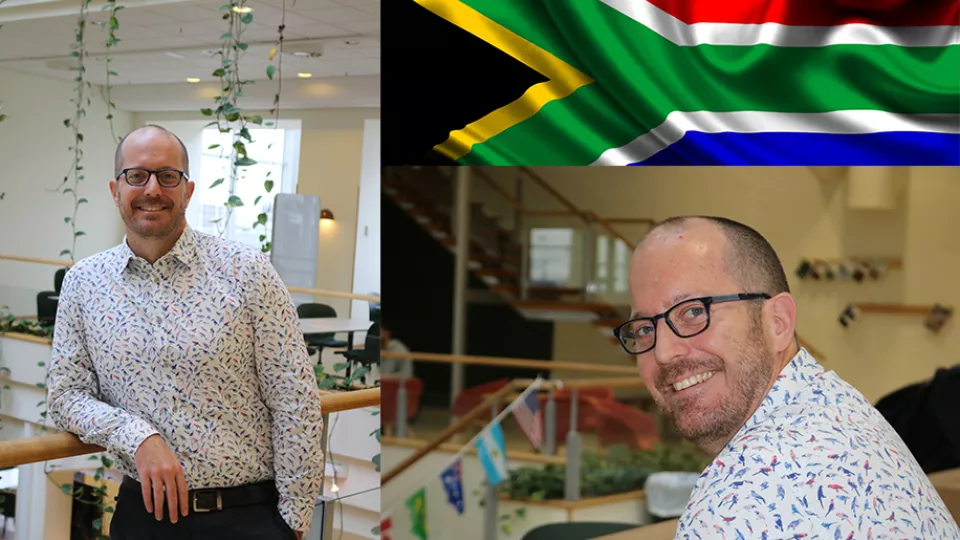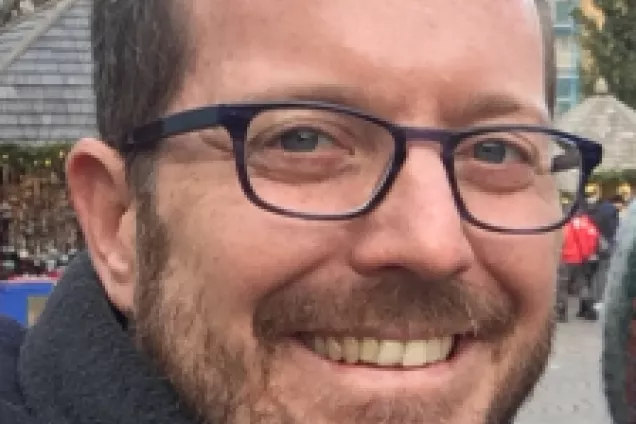Meeting him over a cup of coffee makes me absolutely sure that his heart and research beats for Africa. Beside Africa, obviously Big data and social media; post-foundational discourse analysis; race & racism; intersectionality; sexuality and queer theory; environmentalism and political ecology; cultural studies makes you passionate!
I ask him about his current research, working on a “discourse map” of the NoFap movement on Twitter. NoFappers are typically young men, who form part of a movement to abstain from masturbation and porn. Certain elements of the movement have attracted critique for their association with AltRight neo-fascism, and with anti-feminist “men’s rights” activism. - I map out the various motivations of users on Twitter for being part of NoFap, which range from Christian faith, to self-mastery, to far-right extremism. This research has arisen from my focus on intersectional approaches to race and racism, combined with an interest in using large corpora of social media data to observe patterns in the discourses of race, gender and class.
Burnett’s broader research agenda is widely speaking at the intersection of critical discourse analysis, political ecology, and critical whiteness studies. - I am interested in how environmentalist discourses construct white futures - what has been called "the whiteness of green” - and how they are tied up in colonial fantasies about the future. I have looked at this question mostly in the context of South Africa, which was the focus of my doctoral dissertation, entitled “Giving back the land: Whiteness and belonging in contemporary South Africa”. I have also done some work on whiteness in environmentalism in the contexts of the United Kingdom, Australia, and Sweden.
I wonder, with his passion for Africa, how did he end up in Sweden?! He moved to Sweden in July 2017 because his husband took up a professorship at the University of Gothenburg, but also… - We have good friends in Sweden and histories of engagement.
OK, fair enough I am thinking; though the African sun must be more attractive these autumn days. So, why did he choose to work at the Department of Strategic Communication? - I worked for many years in leadership roles in South Africa’s largest youth-focused HIV-prevention programme, loveLife. Our ambition was to use multimedia and social mobilisation to have a positive impact on lifestyle and sexuality norms among teenagers. Strategic communication has thus always been a fascinating subject for me, and one that raises complex intellectual and moral questions. Having gone through the process during my PhD of better understanding critical approaches to discourse, I think I may have something to contribute to discussions about this field.
Myself, I have only studied at a University in South Africa, so how does it differ to work in Sweden from South Africa as an academic? He has a very content answer to this question; - I have now worked longer as an academic in Sweden than I ever did in South Africa. Swedish universities are better funded and far more resource-intensive in general than South African universities, and this lends a certain sense of freedom to imagine and pursue new research projects. At the same time, South African academics and students tend to be far more politically engaged and passionate about higher education reform, largely because there is so much in our society that we are determined to get right. Maybe, we should all become a little more passionate.
Wondering how Scott started to research race, gender, and sexuality from a holistic point of view. Is it his experience of growing up in a country where politics and race is a big issue? Why did he choose certain topics? - I think racism and colonialism are global issues, we in South Africa are perhaps more likely to take them seriously than people in other countries. It does not mean they are ‘our’ issues alone. Certainly as a cisgendered able-bodied middle-class white South African I do feel myself enmeshed in an unjust power structure that I benefit from and need to be involved in deconstructing. Though I have felt this for much of my adult life, I only recently engaged with the kinds of theoretical tools that could really make sense of this experience.
Reflecting on the subject of strategic communication and our Department, Scott definitely has a unique approach, but also an important perspective on communication that our students, staff and the research field itself have something to reflect upon.
We are coming to the end of our chat and I cannot stop thinking that his research within race from a communicative perspective must be a subject that easily can be carried out in his new country. Is he seeing similarities from a different point of view in what happens in Europe today?! Absolutely, he promptly answers. - One of my first research contacts in Sweden was with the Sámi scholar May-Britt Öhman, and we have had very productive conversations about green colonialism in Sápmi. I am part of the VitKrit critical whiteness and decolonial research network at the University of Gothenburg, which has come under attack from conservative academics. I think some really interesting critical work on race and whiteness is being done by scholars such as Tobias Hübinette and Catrin Lundström. Another Swedish scholar whose work is relevant and exciting is Malin Idéland at Malmö University, who conceptualised the “KRAV-märkta människan”. This concept has a deep relevance to strategic communication that I think has not been explored yet.
Once again, Strategic Communication is definitely a subject to reach the masses and can easily be connected and researched from different perspectives. Ending the chat with Scott makes me super inspired to follow his next research move. Also, feeling happy that our students get to meet this teacher during lecturers, but also for us to have him here at the Department of Strategic Communication.
Interview & text: Erika Fransson



